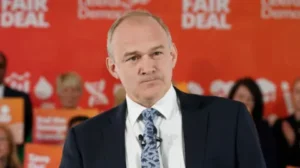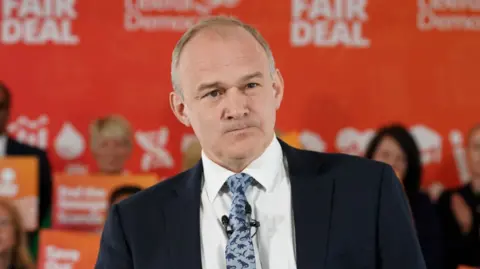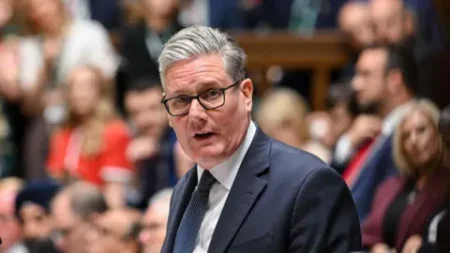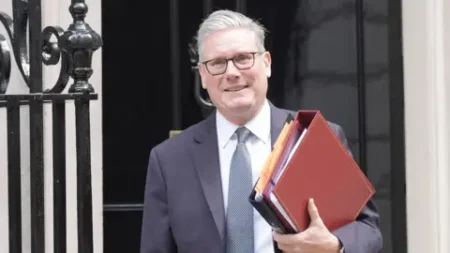The Liberal Democrats have recently endorsed an innovative strategy known as the “pot zero” plan aimed at significantly reducing household energy bills. This initiative proposes a transformative approach to how new renewable energy projects are financed, enabling greater efficiency and sustainability across the energy sector. By fundamentally changing the pricing structure used for compensating renewables firms, the Lib Dems foresee a potential reduction of household bills by approximately 50% by the year 2035.
The concept of “pot zero” has been introduced by researchers from the UK Energy Research Centre (UKERC) and is envisioned as a framework where contracts are negotiated between the government and renewable energy companies to ensure a guaranteed price for the energy they produce. This would allow for greater predictability regarding energy costs and a reduction in reliance on fluctuating wholesale gas prices. Specifically, party leader Sir Ed Davey emphasized that this proposal not only aligns with environmental goals but also strives to protect consumers from the volatile dynamics of the energy market.
The proposal builds on ongoing reforms being led by Energy Secretary Ed Miliband, who has initiated a process to transition towards a more stable energy economy. The Liberal Democrats seek to expedite this transition by advocating for the inclusion of all renewable energy generators in the switch to guaranteed pricing structures. They argue that the current pricing systems disproportionately tie electricity costs to gas prices, which has left consumers vulnerable to increases triggered by global market shifts, often driven by geopolitical tensions.
In his presentation at an Institute for Public Policy Research (IPPR) event, Sir Ed highlighted the woeful reality that for roughly 97% of the time in 2021, electricity costs were dictated by gas prices, a practice he regards as “manifestly unfair.” His comments underline the necessity of reforming the existing system to reflect the growing contribution of cheaper renewable energy sources. The overarching goal is not just to alleviate financial burdens on households but also to help bolster public confidence in renewable investments that are fundamental to achieving the UK’s climate objectives.
To further elucidate, the Lib Dems argue that comprehensive adoption of their “pot zero” proposal could lead to substantial financial relief for households, potentially saving as much as £850 off the average household energy bill, currently pegged at £1,720. Breaking down this figure, proposed components include approximately £200 in savings as a direct result of the new fixed contracts, £30 from extending the lifetime of Contracts for Difference (CfDs) for renewable projects, and an estimated £250 reduction for homes utilizing gas heating as the energy landscape transitions to greener sources.
The broader public discourse also touches upon strategies for enhancing overall energy efficiency, with anticipated savings of about £180 per household, in conjunction with behavioral changes that could facilitate lower tariff rates during off-peak hours. It’s estimated that cooperative strategies between the UK and EU could introduce further efficiencies to the grid, enhancing electricity trading and helping to drive down wholesale prices.
In response to these propositions, Ed Miliband underscored Labour’s ongoing commitment to consumer interests, advocating for accelerated reforms and expanded bidding opportunities for clean energy projects. He reiterated the government’s ambition to establish the UK as a “clean energy superpower,” distancing its energy landscape from unpredictable global gas dependencies while simultaneously triggering job growth within the renewable sector.
This pivotal political landscape highlights a growing consensus around the need to innovate in energy financing and pricing mechanisms to achieve not only economic but also environmental objectives. By revolutionizing the way renewable energy projects are commissioned and compensated, the Liberal Democrats, alongside Labour’s proactive measures, aim to not just respond to the current crisis in energy costs but also to set a sustainable trajectory for the future of Britain’s energy economy.











